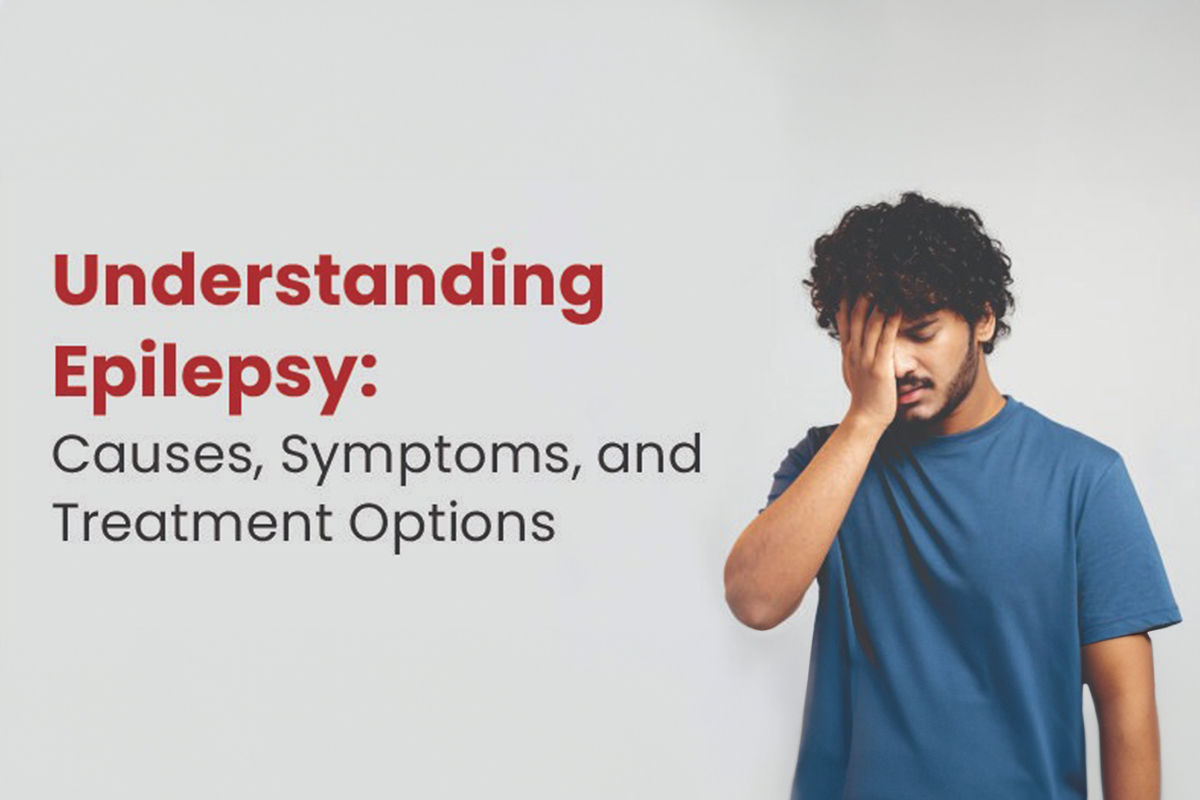
Understanding Epilepsy: Causes, Symptoms, and Treatment Options
By Dr. Sushma Sharma in Neurosciences
Nov 23, 2023
Epilepsy, a neurological disorder impacting millions globally, manifests as episodes of disrupted brain activity. Symptoms range from altered sensations to loss of consciousness and convulsions.
Causes of Epilepsy:
Epilepsy can be caused by various factors, and in many cases, the exact cause remains unknown. Some common causes include:
- Genetic Factors: Certain genetic mutations or inherited traits can make individuals more susceptible to epilepsy.
- Brain Injury or Trauma: Head injuries, infections, or traumatic brain injuries can lead to epilepsy, especially if they involve the areas of the brain responsible for regulating electrical activity.
- Brain Conditions: Certain brain conditions, such as tumors or strokes, can cause changes in brain function, leading to seizures.
- Infections: Infections affecting the brain, such as meningitis or encephalitis, can trigger epilepsy.
- Developmental Disorders: Disorders that affect brain development, such as neurofibromatosis or tuberous sclerosis, can be linked to epilepsy.
Symptoms of Epilepsy:
The primary symptom of epilepsy is recurrent seizures. Seizures can manifest in various ways, and the type of seizure a person experiences depends on the part of the brain affected. Common seizure types include:
- Tonic-Clonic Seizures: Characterized by muscle stiffening (tonic phase) and jerking movements (clonic phase).
- Absence Seizures: Absence Seizures: Absence seizures often occur in children and are characterized by brief episodes of staring into space or subtle body movements.
- Complex Partial Seizures: Altered consciousness with repetitive, unintentional movements.
- Simple Partial Seizures: Symptoms vary based on the affected brain area, such as twitching or sensory changes.
Diagnosis:
Diagnosing epilepsy involves a thorough evaluation of medical history, symptoms, and diagnostic tests, including:
- Electroencephalogram (EEG): Measures brain waves and identifies abnormal patterns.
- MRI or CT Scans: Helps identify structural abnormalities or lesions in the brain.
- Blood Tests: Rules out metabolic or genetic conditions.
Treatment Options:
While epilepsy cannot always be cured, various treatment options aim to control seizures and improve quality of life:
- Medications: Antiepileptic drugs are often the first line of treatment to control seizures.
- Ketogenic Diet: A high-fat, low-carbohydrate diet that may help control seizures, especially in children.
- Vagus Nerve Stimulation (VNS): A device implanted under the skin that sends electrical impulses to the vagus nerve, helping reduce seizures.
- Surgery: In cases where seizures originate from a specific, identifiable area in the brain, surgery may be an option.
- Living with Epilepsy: Living with epilepsy involves managing the condition through medication adherence, lifestyle adjustments, and regular medical follow-ups. Support from healthcare professionals, family, and friends is crucial in enhancing the overall well-being of individuals with epilepsy.







